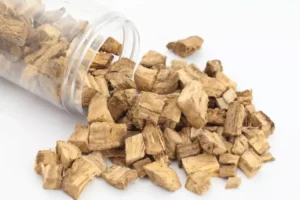Alcohol Allergies: Symptoms, Signs, and Treatment for Reactions

Some people are born with a tendency to develop lactose intolerance; others get it as a result of gastroenteritis or chemotherapy. Ask your doctor if you need to carry emergency epinephrine (adrenaline) in the form of an autoinjector (EpiPen, Auvi-Q). This prescription device has a concealed needle that injects a single dose of epinephrine when you press it against your thigh. If you’re a seasonal allergy sufferer, you know all about histamine, a chemical compound that can trigger inflammation and allergic reactions. While there is no way to treat this condition, your healthcare provider can talk with you about ways to reduce the negative effects of alcohol intolerance. You may notice that even after drinking a small amount of alcohol, you don’t feel great.
- You may also have other symptoms, such as nausea, vomiting, diarrhea, dizziness, heart flutters, and a stuffy or runny nose.
- Alcohol flushing syndrome is a major sign of alcohol intolerance.
- “Alcohol can also cause your blood pressure to go up and down by constricting and dilating blood vessels, which can worsen allergic reactions,” Parikh says.
- This treatment is especially beneficial for individuals with multiple allergies or those who find it challenging to avoid allergens entirely.
- The reason is that alcohol dilates blood vessels, which then sets the stage for a symphony of bodily responses.
The 7 Best Foods and Drinks for a Hangover (and 4 to Avoid)
Yeast is used in all fermented alcoholic beverages, including beer, wine, hard cider, and sake. This article looks at some of the possible causes of alcohol allergy or intolerance. It also offers tips on how to drink alcohol safely if you have an allergy or intolerance to any ingredient used to make wine, beer, or distilled spirits. When you have an https://ecosoberhouse.com/, your immune system is overreacting to an ingredient in the drink. If you have other allergies, you are more likely to have an allergy to alcohol, according to research from Switzerland. If you have a reaction to an alcoholic drink, you may have one of two things—a true allergy or an alcohol intolerance.
Alcohol Allergies

Alcohol intolerance is caused by a genetic condition in which the body can’t break down alcohol efficiently. The only way to prevent these uncomfortable reactions is to avoid alcohol. An allergic reaction might not occur the first time a person encounters an allergen.
Alcohol Allergy Treatment and Prevention
- Common allergens in alcoholic beverages include grains (like barley, wheat, and rye), yeast, hops, and even sulfites.
- Consuming alcohol can cause other effects such as fluttering of the heart (palpitations), feeling hot, headaches, gut discomfort or a drop in blood pressure.
- To keep your risk as low as possible, avoid alcohol entirely.
Even drinking a small amount of alcohol (ethanol) causes unpleasant symptoms. Your face may turn pink or red (alcohol flush) and feel warm. While an allergy to alcohol is rare, an allergy or intolerance to ingredients used to make wine, beer, or distilled spirits can. While most people can tolerate sulfites in foods, there are some who are especially sensitive to them and may experience an asthma attack. In rare instances, exposure to sulfites has been known to cause a potentially life-threatening, whole-body allergy known as anaphylaxis.
Present in abundance, particularly in red wines, histamine can be the instigator of headaches, flushing, nasal symptoms, gut disturbances or even asthma. Those intolerant to histamine may grapple with these symptoms because their body is unable to break down and eliminate this compound. Avoid the beverage or beverages that seem to cause your reaction until your doctor’s appointment.
Why do people develop an alcohol intolerance?

Also, the intolerance could potentially stem from an allergy to ingredients in the alcohol itself, including chemicals, grains, or preservatives. Reactions to alcohol intolerance can include flushed skin, hives, exacerbated asthma, nasal congestion, low blood pressure, nausea, vomiting, allergic reaction to alcohol and diarrhea. Alcoholic drinks can also trigger an allergic reaction to food if you consume the two together, as alcohol can interfere with the gut lining. For example, someone with a wheat allergy may only react after eating wheat followed by drinking alcohol or exercising.

Medical Professionals
- You can also help prevent interactions with Femara by taking it exactly as your doctor prescribes.
- Join our satisfied clients who’ve experienced safe, effective treatments.
- They can range from mild to severe, according to Richmond, and may include runny nose, coughing, wheezing, itching or hives.
- According to the Cleveland Clinic, alcohol intolerance is caused by a genetic metabolic disorder that prevents the body from producing the enzymes necessary to process alcohol.